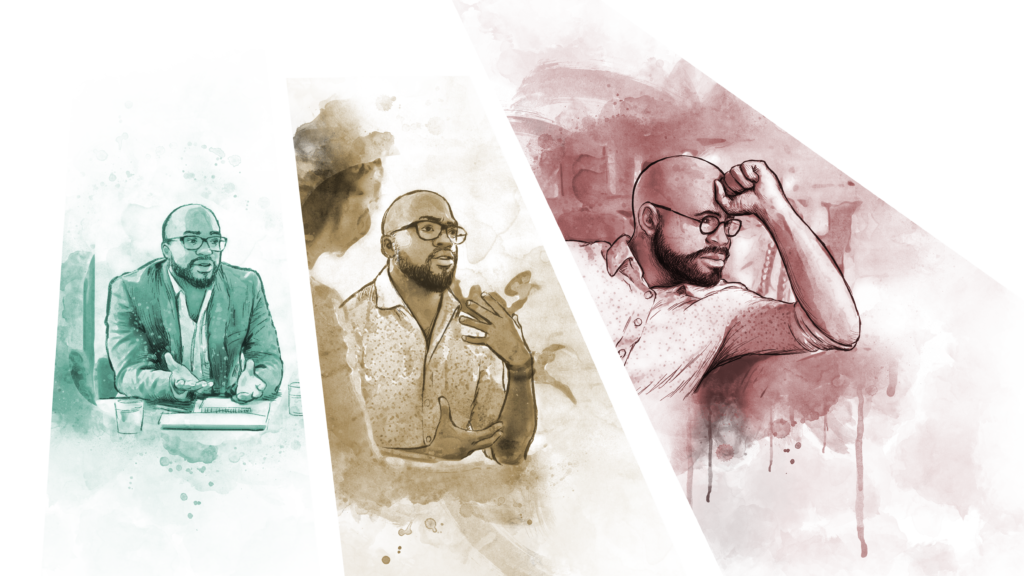
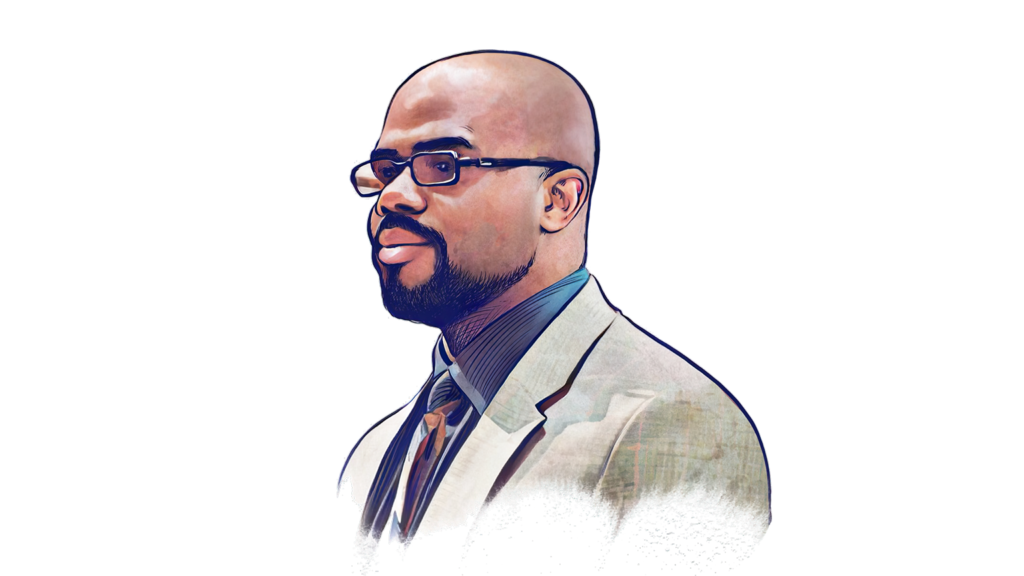
“Who gets to tell the narrative…and in what rooms are those conversations happening?”
John Russ, Former Global Head of Marketing, Coinbase
Getting into the room
Sneaking into a job fair isn’t a typical act of teenage rebellion. John Russ, however, wasn’t a typical 14 year old.
John and his brother were raised by a single mother because the month after John turned 8, his father suddenly passed away. His mother, forced to maintain a household by herself, instilled independence, curiosity, and a love of data in John from an early age (his parents met while getting their MBAs in Finance). Recalling his childhood, John says, “When I wanted a raise in allowance, I had to make a business case for it. I had to learn to apply different data points to pull together a story.”
“The one thing that saved my bacon is I’ve always tried to take away lessons from each situation I’ve found myself in,” says John. “I became a freak about trying to learn things in a way that they become repeatable. Even when I was a kid, that was a part of learning at home.” During those next few years, as he grew older, John did a lot of his formative learning at home by watching his mother. “The lessons I took away were about what it means to move in the world. What it means to be accountable, to be diligent and hardworking…if I hit a roadblock or a stumbling block, what are the learning opportunities and the ways I can navigate?”
Armed with those years of “training,” 14-year old John talked his way into a life-changing internship at a law firm that was meant for High School seniors when he was a newly minted freshman. That internship at Maslon Edelman Borman & Brand (now known as Maslon LLP) gave John an early professional start relative to his peers. “I had to believe in myself,” remembers John. “That I was just as qualified and able to do the work a Junior or Senior would, and if I wasn’t, I’d figure it out.”
That gumption started John down a path to Stanford’s Graduate School of Business, and eventually to subsequent positions at BCG and ConAgra. In 2014, He moved over to tech at Google, and then became head of Integrated Marketing at Nerdwallet and Zapier. Finally, in 2020, John had a high-profile moment as the Global Head of Marketing for Coinbase as they were preparing to IPO in 2021. Coinbase turned out to be the home of both one of the biggest controversies in 2020 tech, for its stance on politics, as well as one of the largest IPOs of 2021.
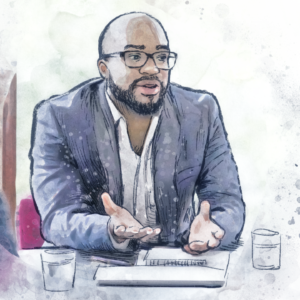
There's a little bit of confidence that's required when you come from backgrounds where you haven't seen other people like you do things you are about to do. I had to ask myself, ‘What's the worst that can happen?’
—John Russ
Almost kicked out of the room before getting started
John’s desire to take away lessons from any life experience has been important as he had to navigate spaces that weren’t designed by, or for, people who look like him. The internship at Maslon was the first time John had to navigate such a space. Of course, any 14-year old working at a law firm is going to have to prove themselves, but as a young black man, John knew he had to be extra diligent. Still, despite John’s intentions, he almost lost that summer job, because of a casual conversation with a paralegal. This person had twisted a conversation out of context and told John’s manager behind his back that John said he would rather be playing basketball than interning, which wasn’t true. John’s manager confronted him about this; he had to quickly piece together what happened and explain that he wanted to keep his job. Eventually, his manager agreed, but it was a turning point that left an indelible mark.
Almost losing his job was John’s “introduction to corporate politics.” That experience taught John the importance of being intentional when he spoke, and being thoughtful about what you communicate and to whom. He also learned the importance of “being around the people who will speak positive things into you, or who see you in a certain light,” like an attorney who brought him along to court cases, even though he was a teenager with no legal experience. It’s a relationship that still endures today. “How do you continue to nurture relationships like that? What can you pour into them and what can they pour into you?” are questions John continues to consider to this day.
John also began to understand that his ability to have impact on things he cared about would be determined by his ability to get inside the “rooms,” both real and metaphorical, where the important discussions take place. If John or others like him weren’t represented in those discussions, how many more misunderstandings could lead to damaging outcomes?
“There are rooms within rooms within rooms so to speak. These rooms have different conversations, different levels of access, different levels of investment opportunities, different things are happening,” explains John. “And unfortunately, a lot of that access is driven by knowing people who open the door for you to be in those rooms.”
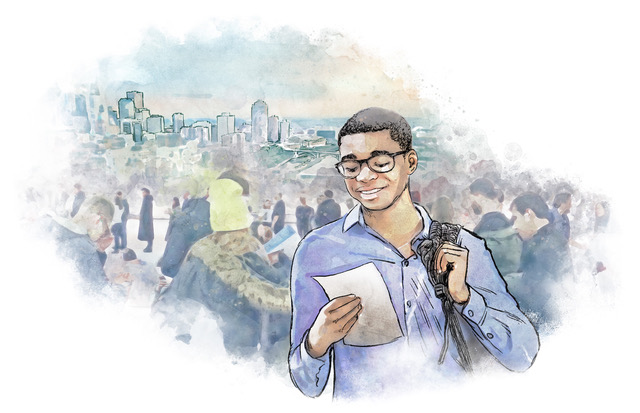
How will you show up?
John arrived at Stanford’s Graduate School of Business asking himself “How do I show up in a way that’s going to have an impact in rooms where people who look like me are usually excluded?”
As one of very few black students, John felt an extra responsibility to hold himself to a high standard. He saw into the future, and realized the conversations he had with fellow classmates might plant seeds of influence with some of the planet’s future leaders. “You know that you are going to be around people who are going to be business leaders. People who are going to be shaping the world. It was very important to me that I didn’t play into things that I thought were already pronounced stereotypes. It was very important to me that I was actually able to drive positive influence,” he recalls. “It was also important to me, honestly, to be a little bit more open and vulnerable, where classmates could feel comfortable asking me questions in a safe space.”
It wouldn’t be the last time John had to ask himself difficult questions about how he would show up in important rooms.
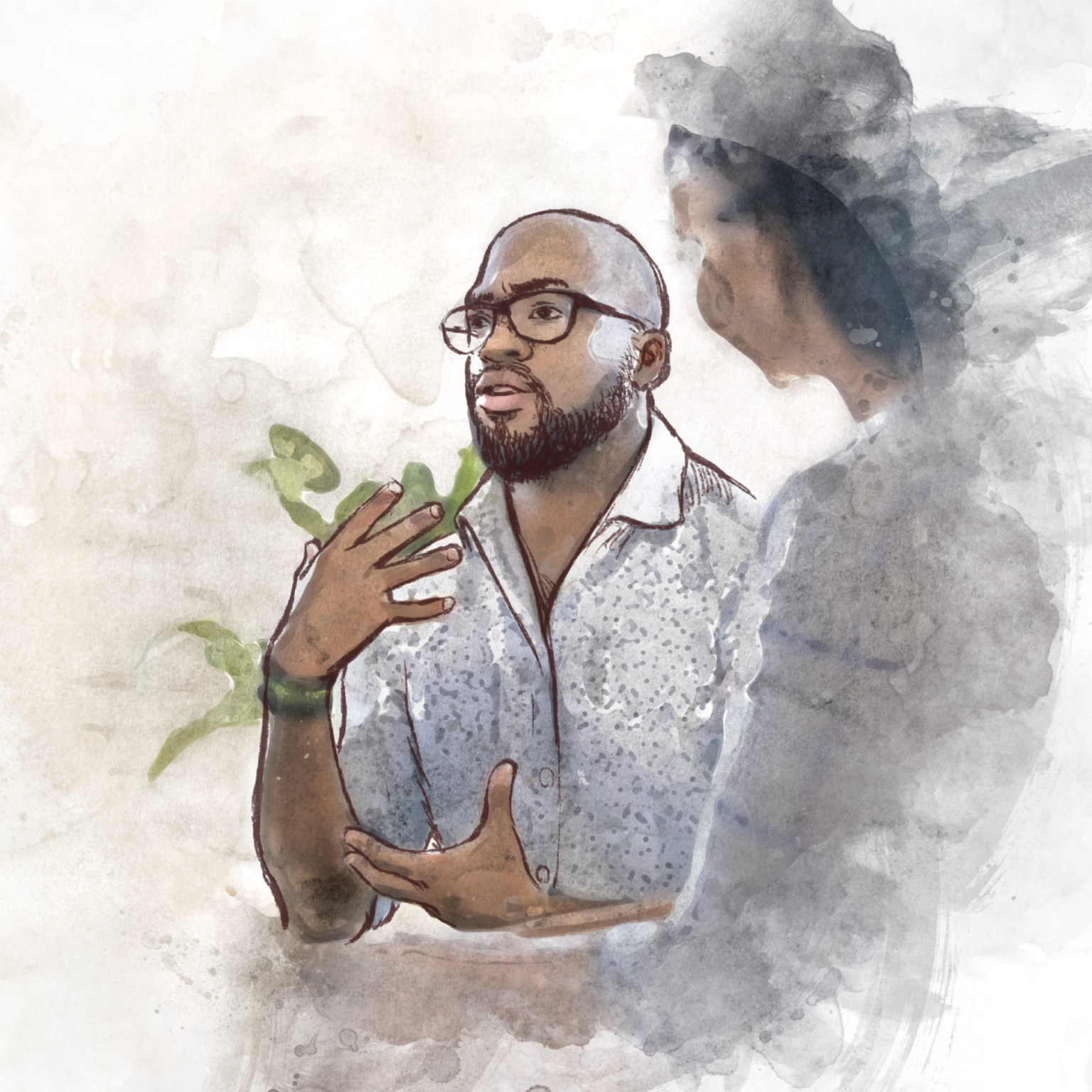
Finding your room!
As a Stanford GSB grad, John was ready to make his place in the world, and hopefully change it for the better in the process. “I want to advocate for humanity, I want to advocate for disenfranchised groups of people,” explains John. “I also want to advocate for making sure that our products and services are right for our customers. That’s chief number one as a CMO.”
Suddenly, in 2020, a recurring job offer from Coinbase would be his first chance. He was “in a good place” at Zapier, leading a large team, and wasn’t looking to move when this new opportunity crossed streams with the Movement for Black Lives and racial justice that was sweeping thousands of Americans into the nation’s streets. Being born and raised in Minneapolis, John was home for a visit, and was physically just a half mile away at the moment George Floyd was murdered in his neighborhood. “Something inside me broke,” John says.
John’s professional life was redirected in the aftermath. He wanted to do more, and after turning down an offer from Coinbase twice, John was finally on board. He saw this as an inflection point, where he could start to use his skills to challenge systems and structures that were exclusionary. “I was interested this time,” he remembers. “If I could be a part of something that had the potential to break some systemic problem disproportionately impacting people who look like me by opening up new avenues or building new on-ramps and institutions, that was a noble thing.”
“Coinbase had always stated their mission was around having a more open economic infrastructure,” says John. “I asked myself, what could we do if we provided access, doors, and gateways to people who have traditionally been disenfranchised in the current economic infrastructure?”
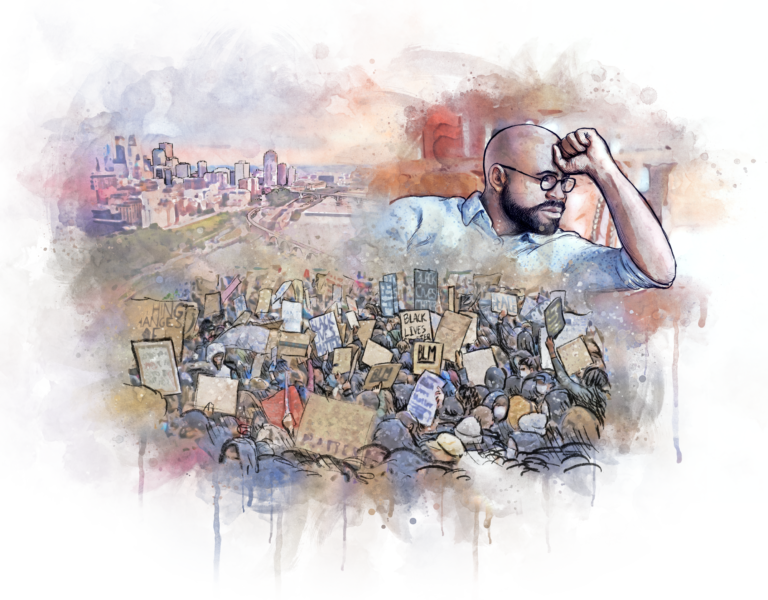
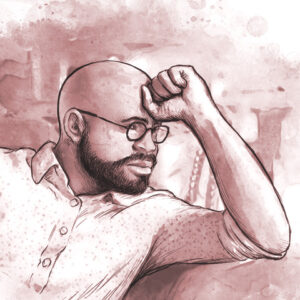
I might not be able to solve racism, I might not be able to solve police brutality. But I can start to take a pick and an axe and start going at the inequality that I'm qualified to solve.
—John Russ
Knowing when to leave the room
Only four months after his arrival at Coinbase, full of idealism and hope to be a part of driving systemic change, John submitted his resignation. His was one of the more high profile exits that were part of a mass departure; around 5 percent of Coinbase’s employees left the firm, after CEO Brian Armstrong declared the company’s culture “apolitical”. The news was covered in The New York Times, Washington Post, Wired, and numerous other industry publications and outlets. In a widely read blog post about the company’s stance, Armstrong addressed “broader societal issues”, stating: “We don’t engage here when issues are unrelated to our core mission, because we believe impact only comes with focus,” and “We don’t advocate for any particular causes or candidates that are unrelated to our mission, because it is a distraction from our mission.”
This post came at a moment when the entire country was engulfed in long overdue conversations on racial justice. Many companies were making official statements using the words “Black Lives Matter”; those that weren’t were facing pressure, both externally and internally, to change their practices, and speak out in support of basic human rights for black people. It was reported that Coinbase itself had experienced an employee walkout just a few months prior to the blog post, for its unwillingness to take a stand. For John, Coinbase’s new stance meant that as a leader, he simply could not do what he came to do.
Ultimately about 60 people decided to take a buyout option Coinbase offered to employees, some of whom came to John for advice before deciding. “I never told anyone what to do, how to decide, or anybody outside of the exec team that I was thinking about leaving. I was cognizant that people have to make decisions on their own merits. They have their own contextual elements around whether or not they can even afford or are in a privileged enough position to leave a job,” John told Stanford GSB Professor Brian Lowery, who helped conduct the interview for this piece.
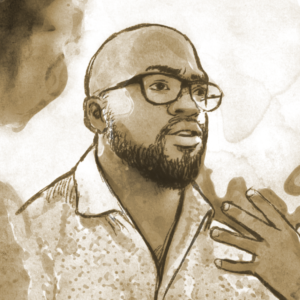
I couldn't stand up and credibly be a leader in the organization, or a leader in the communities that I'm a part of, and feel like I was tacitly endorsing something that could potentially marginalize disenfranchised people.
—John Russ
Finding your room!
Although John’s decision to leave Coinbase came after “many sleepless nights” of worry about his future, it has helped him be more clear and emboldened his discussions when considering the role he wants his career to play. In a twist of irony, leaving Coinbase opened up many doors of opportunity and numerous job offers.
“That’s one of the things that I lead with now that I’m talking to organizations: ‘If you get me, you’re not just getting the marketing smarts and muscle and the ability to build an org, but you’re also getting me as a human,” John says. “You’re getting these other components where I’m going to push and challenge our thinking. We may have to have tough conversations. I don’t expect you to know all the answers, but I do hope that we’ll be able to engage from a shared sense of values around where we want to land.”
When Professor Huggy Rao, who conducted most of the interviews for this piece, asked John if he sees himself as an activist, John’s answer was an emphatic, “No,” but with a twist:
“I see myself as an advocate more than an activist. It’s my job to figure out what’s actually happening and then advocate for the right solution inside the building.”
“The chief marketing officer should also be your chief “belief” officer and your chief “B.S.” officer,” says John. “If you’re saying something that’s not going to work for the clients we want to serve, I should be able to close the door and tell you that I’m going to call B.S. on it if I don’t feel like what we are doing is right. As an executive, that is part of my responsibility.”
